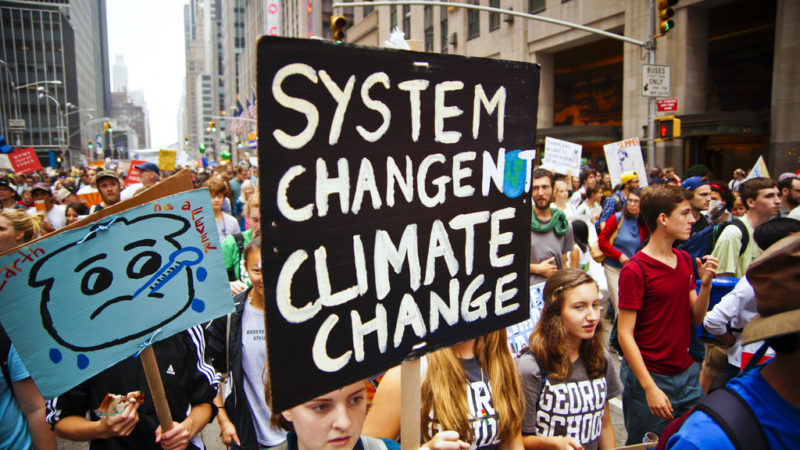The former Green Party leader reports from COP on stories of resilience - and resistance.

You might call them signs of a peaceful revolution.
Whether it’s UN climate change conference in Bonn, women standing up to harassment in Westminster, or activists standing against fracking in Kirby Misperton and Preston New Road, people and communities who have been downtrodden for a long time are sending a very clear message: we’re not going to take this any more.
Yesterday, at the first UN Climate Change press conference of the COP23 talks in Bonn, Patricia Espinonsa, the executive secretary of the United Nations Framework Convention on Climate Change (UNFCCC), was asked about the American position on climate change under President Trump. She replied pointedly: “The US delegation is present…They have obligations under the Paris Agreement.”
Fiji’s chief negotiator, Nazhat Shameen Khan, already known for a scarcely-veiled reference comparison of Donald Trump to an axe murderer, looked on approvingly. Fiji is the first small island state to chair COP – and holds significant moral sway.
“Some of the most significant voices in [the previous climate change talks in] Paris were from the Pacific,” Khan noted. Their accounts of suffering and danger to their very existence can not be ignored. And it is something that will affect us all. As a Malaysia speaker told the Friends of the Earth press conference on floods swamping Penang: “rich and poor are being affected alike”.
Meanwhile in London, women are speaking out about the abusive culture of Westminster – while the revelations of the Paradise Papers highlight the huge divide between rich and poor, with figures from the Queen to Lewis Hamilton implicated.
That was less distant from Bonn than it might have appeared – while time the revelations were being released, a speaker from Togo was telling the Friends of the Earth International press conference that stopping tax-dodging in Africa would provide the cash needed to ensure every resident of the continent had access to clean, renewable energy supplies. He refers to tax-dodging that often, of course, takes place through British-linked tax havens – and which involves corruption at developed world firms.
And while COP rolls on, in what one Tory peer called the “desolate North” the people of Lancashire and Yorkshire are united in opposing new fossil fuel extraction. In Pickering, 12 women, conjuring the history of the suffragettes, chained themselves to the Conservative Club, while major protests at Preston New Road continued to send the message to a distant Westminster: “Lancashire Said No”. Here in Bonn, ‘Frack Off’ placards are a reminder of this battle – one which is winning across much of the world.
Pertinent here is the feeling that local governments, from villages to cities, are vital not just in tackling climate change but also creating social justice themselves: defending their peoples against the misuse of the power of central governments.
What is clear is that the people who’ve had nothing to do with creating climate change are already bearing its worst effects – the vulnerable island states, the poor of the world, women. And in the North of England and South of Wales it is poorer communities that will face the pollution and risks of fracking while the South East of England gets richer and more polluting.
The one thing we know is that we can’t and won’t continue as we are. Change is inevitable. Everyone, including those who’ve basked in the ill-gotten gains of the past few decades, must hope that the constructive voices in Bonn, in Westminster and in the North triumph: voices demanding a just transition to a one-planet life, demanding gender equity, and renewables not fracking.
No one can escape from the climate crisis, or from the social and economic crises that the world faces today. We have to build a new mode of life, one where we stop trashing the planet while creating a miserable, unequal, insecure society.
We can build a sustainable, decent life for everyone. In fact, there is no alternative.
Natalie Bennett is at COP with the Green Economics Institute




3 Responses to “Natalie Bennett: From Bonn to Westminster, we are witnessing a peaceful political revolution”
greg
And how many thousands of people will fly into Bonn – leaving a trail of CO2 behind them.
Why don’t these ‘climate change’ paragons video conference?
Ms Bennett is a hypocrite as well as being completely delusional.
Swat
Bless them. The Greens will always be a pressure group, not a Party.
But she’s absolutely right. It’s the rich that get the pleasure, the problem that suffer the pain. Why?
Ed Furst
What does “COP” mean?